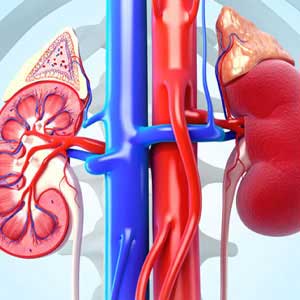Glomerulonephritis doctor in Anantapur
Glomerulonephritis is a form of kidney disease characterized by damage to the kidney structures responsible for filtering waste and fluids from the bloodstream needing Glomerulonephritis Treatment in Anantapur. This condition arises when the glomeruli, the blood-filtering units of the kidneys, become inflamed and develop scarring. Various factors can contribute to its onset.
Complications
Acute glomerulonephritis may present as a temporary and reversible condition, or it may deteriorate over time. In contrast, chronic or rapidly progressive glomerulonephritis can result in chronic kidney disease (CKD) or even kidney failure.
Diagnosis
Often, the initial indications of glomerulonephritis manifest through various signs and symptoms, including the presence of protein and blood in the urine. Blood and urine analyses can further assess potential kidney damage. Additionally, a kidney biopsy and other diagnostic tests may be required by Best Glomerulonephritis Specialist in Anantapur.

Diagnostic evaluations
- Urine and blood tests are essential for identifying indicators of kidney disease. The estimated glomerular filtration rate (eGFR) is a blood test that assesses the efficiency of the kidneys in filtering blood.
- The urine albumin-to-creatinine ratio (uACR) is a urine analysis that detects elevated levels of protein (albumin) in the urine, which may indicate kidney damage.
- For specific kidney conditions, a urine protein-to-creatinine ratio (uPCR) may be utilized. This test is akin to the uACR, but it evaluates the presence of all proteins in the urine rather than solely measuring albumin.
- Genetic testing can be employed to determine if an individual possesses a gene variant associated with certain genetic or hereditary kidney disorders. Such testing can be requested by a physician or a genetic counselor, who is a healthcare expert trained in genetics and related diseases. They provide guidance regarding the testing process and its implications. The choice to undergo genetic testing is made in collaboration with a healthcare provider.
- A kidney biopsy serves to verify a diagnosis of glomerulonephritis. This procedure involves the extraction of one or more small samples from the kidney, which are then examined under specialized microscopes to provide detailed insights.
- Imaging studies, such as ultrasounds or CT scans, may be conducted if further diagnostic information is required.
Additionally, further assessments may be necessary to monitor other health issues associated with Kidney Inflammation Treatment in Anantapur. Individuals diagnosed with glomerulonephritis may be required to adhere to a nutritious diet that is low in both salt and cholesterol to lower blood pressure and manage swelling. Additionally, per Best Kidney disease doctor in Anantapur, Dr. M. Surendra Babu reducing cholesterol levels in the diet can mitigate the risk of heart disease. It may also be necessary to limit fluid and water consumption.
